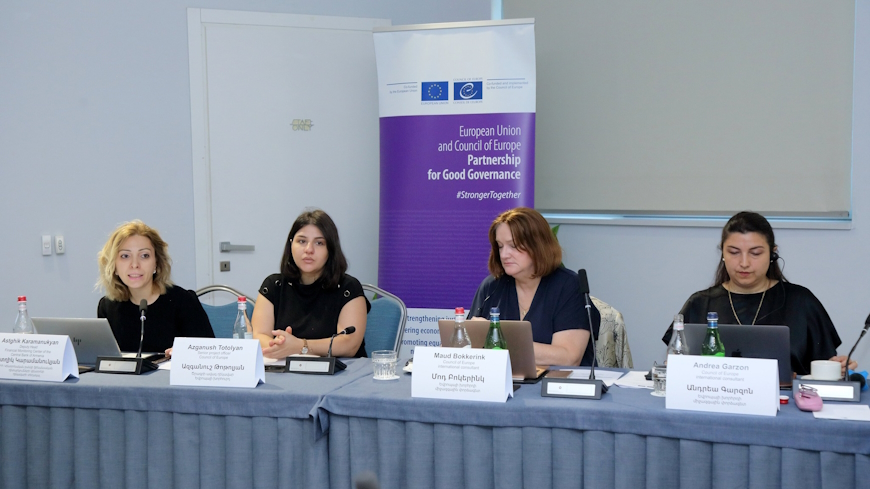International standards require countries to implement targeted financial sanctions regimes relating to the prevention and suppression of terrorism and terrorist financing. The freezing of the assets of those suspected of terrorism financing and those listed in domestic and international sanctions lists is a highly effective way to disrupt terrorist attempts to raise, move, and use funds.
The Council of Europe, in cooperation with the Financial Monitoring Centre under the Central Bank of Armenia, organised a 2-day workshop for relevant AML/CFT supervisory authorities aimed at discussing their roles and responsibilities in implementing and enforcing targeted financial sanctions regimes.
The workshop offered a thorough overview of the existing framework for international sanctions, types of sanctions (financial, economic, trade) and criteria for listing of individuals and entities in international sanctions lists. The responsibilities of the national authorities of Armenia were analysed (listing/delisting, licensing, requesting access to funds, export controls) with a focus on how each function is crucial in terms of ensuring effective enforcement of international sanctions.
Ways to implement effective supervision over the implementation of targeted financial sanctions (and available procedures and resources in Armenia) was tackled during the event with the aim to further enhance internal practices to supervise and monitor compliance, by the obliged entities, with the implementation of targeted financial sanctions regimes.
This event is part of the European Union and the Council of Europe joint programme “Partnership for Good Governance”, co-funded by the European Union and the Council of Europe, and implemented by the Council of Europe, in the framework of the Project on “Enhancing national capacities for effective prevention and fight against economic crime in Armenia”.








